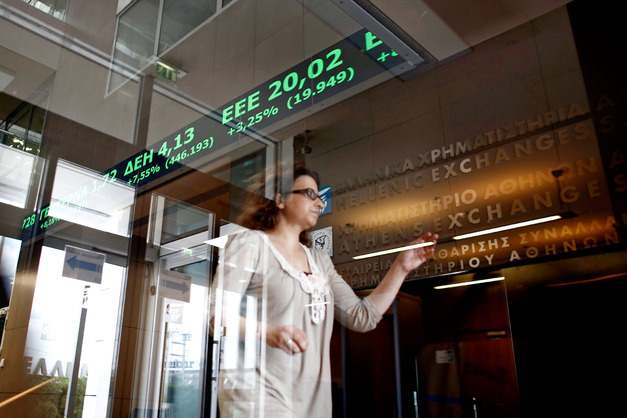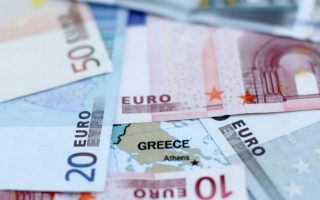Greece extends market shutdown as government begins discussions

The Greek government extended the shutdown of its financial markets at least through Monday as it prepared to welcome creditors for negotiations on a third bailout program.
A decision on when and under what conditions Greek markets will reopen was deferred to next week, a government official told reporters on Thursday, asking not to be named in line with policy. The Athens Stock Exchange, multilateral trading facility and electronic secondary market for bonds have been closed since June 29, when the government issued a decree imposing capital controls and a forced bank holiday.
Greek officials setting the ground rules for a reopening of the Athens exchange need to decide whether to exempt investors from capital controls and risk more money heading for the exit, or safeguard scarce liquidity and get further isolated from global markets. MSCI Inc. is considering a downgrade of the country and FTSE will decide whether to keep Greek securities its its global indexes on Friday.
The nation is seeking a return to normality as the government begins new bailout talks. The first representatives of Greece’s official creditors are due to arrive in Athens on Friday. Greek bankers will meet officials from of the Single Supervisory Mechanism in Frankfurt on Friday.
New Agreement
Greece wants to seal an agreement with creditors by Aug. 20, when a 3.2 billion euros ($3.5 billion) bond redemption on notes held by the ECB comes due, the government official said. The country is also seeking a review of its banking system to be completed at the same time to help restore confidence and pave the way for a new round of capital injections, the official added.
Financial markets remained shut even after bank branches reopened on Monday with limited services. Short-selling, cash settlement of transactions on securities traded on Greek markets and transfers from local to foreign accounts of financial instruments traded on the Athens Stock Exchange also remained suspended.
Allowing investors to freely use money from their bank accounts to trade could further strain their buffers, while reopening bourses with restrictions in place would risk leaving the market with no buyers.
Cuba, Zimbabwe
After joining debtors including Cuba and Zimbabwe when it missed a payment to the International Monetary Fund at the end of last month, Greece risks further ignominy.
Prolonged restrictive measures could lead to a downgrade by MSCI Inc. to “standalone market,” a designation that includes Jamaica, Botswana, Zimbabwe and mainland China, from emerging market. That might mean trading and prices would decline even further and Greek companies would be cut off from a crucial source of funding. FTSE will consider whether to demote Greece to advanced emerging market from developed in its September annual country classification review.
Greek officials said earlier this week that representatives of the Bank of Greece, the Hellenic Capital Market Commission and the Finance Ministry would issue a decree on the reopening of financial markets after a parliamentary vote on new laws demanded by creditors in return for aid. The actions were approved in the early hours of Thursday, setting the stage for the new bailout discussions.
Talks must be completed by Aug. 12, so that euro-area parliaments can approve the disbursement of bailout funds to Greece by Aug. 18, according to the government official. Among the contentious issues remaining is the country’s budget targets from this year through 2017, the official said.
[Bloomberg]





